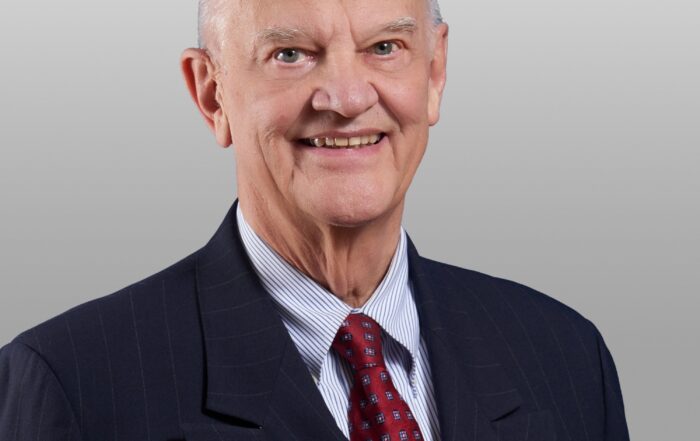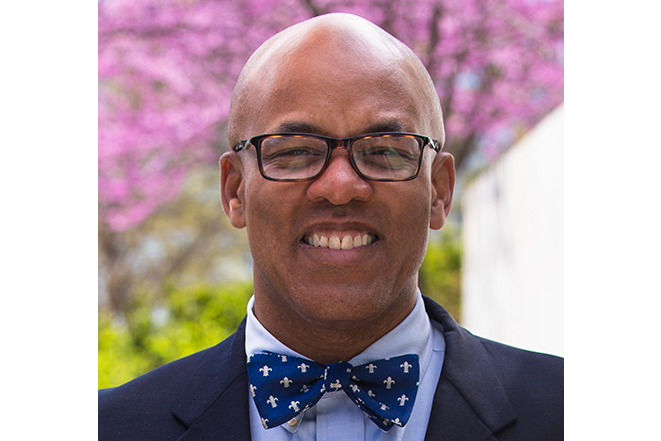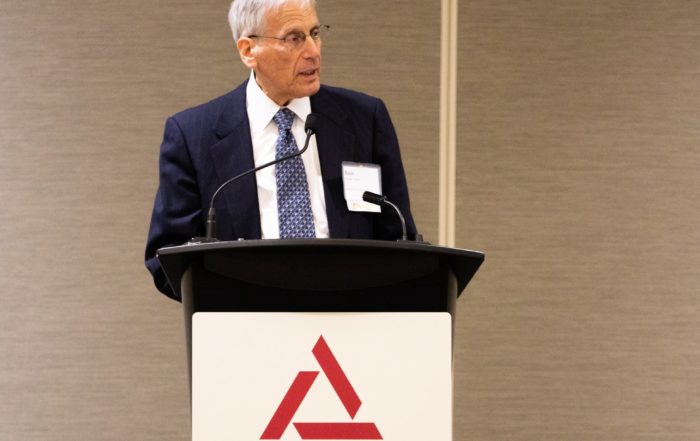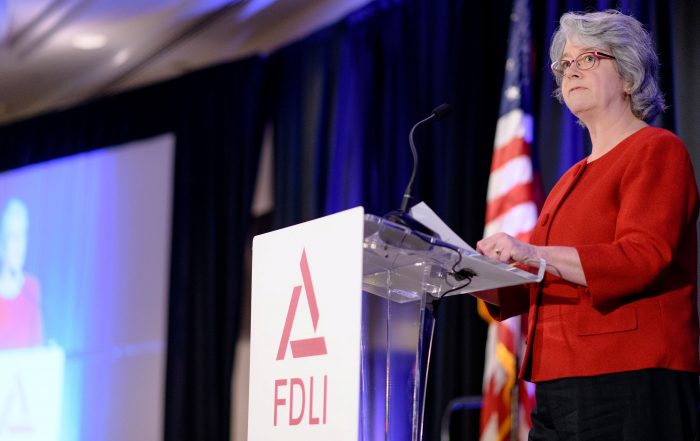2nd Annual Eric M. Blumberg Memorial Lecture
December 9, 2014
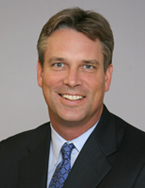
Good afternoon. Thank you for the kind introduction. I joined King & Spalding in 1994, after nine formative years of government service. Much of it was devoted to judging compliance, and evaluating and developing enforcement policy and actions – civil and criminal. I absolutely loved my five years in FDA’s Office of the Chief Counsel. It is the same office where my good friend Annamarie Kempic serves as the Deputy Chief Counsel for Litigation. She delivered the inaugural lecture in this series a year ago. While at FDA, I got to work directly with – and for – Rick Blumberg.
Before I dive deeper, I want to take a moment to share some personal thoughts about Rick. He will forever be on my shortlist of the most important mentors I have ever known. I was extremely lucky to have had a chance to work with Rick and to have become extremely close with him. He counseled me on many levels and I learned tremendous lessons from him. Rick has many disciples. I am proud to be one of them. To be asked to give a lecture established in Rick’s memory is a great honor. I am humbled and extremely grateful for this opportunity.
A Perspective Shaped by Experiences in Government and Private Practice
As I began to give serious thought to this lecture, I thought about many of the principles and lessons I learned over the years. I learned them from Rick and other legends in the FDA bar, especially Gene Pfeifer, Arthur Levine, Fred Degnan, Ed Basile, Rich Cooper, and Tom Scarlett. They taught me – and many, many others – not just about compliance and enforcement, but also about FDA’s concerns and objectives; how to listen very carefully – both to your client and to those on the other side of the issue; how to be measured in your approach; how to educate clients about the limits of their authority; how to handle clients that are being unreasonable. They also taught me about the duties and responsibilities a lawyer has to clients; how to find solutions that can work for both sides; and how to exercise good judgment. These are important principles and they apply to everyone involved in compliance.
I also thought about the experiences in regulatory compliance and enforcement to which I have been an eye witness. When I think about my own experiences, a certain Clint Eastwood movie comes immediately to mind: “The Good, The Bad, and The Ugly.” Many of you can relate.
Last year, Annamarie began her speech with Rick’s favorite Chester Bowles comment. He used it often to set the table for one of his scary talks on FDA enforcement. For those who have not heard it or do not remember it, let me fill you in. Mr. Bowles was the head of the Office of Price Administration during World War II. He once said that in any given industry, 20% will comply no matter what; 20% will not comply no matter what; and 60% watch to see what happens to the non-complaint 20%, and will act based on what they observe. Annamarie’s speech focused on “motivating” and “encouraging” the 60% into compliance through FDA’s various enforcement tools. Fear of negative consequences is a great motivator. I know because my parents instilled it in me at a very young age—and for good reason. It left an impression that has lasted a lifetime. Shortly after my first child was born, my Dad said this to me—“children are born bad; you have to teach them how to be good.” I immediately realized that my childhood behavior was the reason he made that observation.
I am going to go in a slightly different direction. I will discuss FDA compliance and enforcement from the perspective of private practice. There are dozens of issues in this fertile area. After a few preliminary thoughts, I will focus on four discrete issues I see time and again. They are:
(1) Voluntary self-disclosures; they can be “game changers;”
(2) Engaging in a dialogue with FDA on compliance issues;
(3) Considerations for individuals hired to “fix” problems; and
(4) The role of outside counsel.
Some Private Practice Perspectives and Thoughts
So, does compliance and enforcement look different from private practice? Yes, it often does. Perspective and vantage point can yield vastly different views. Recently, I had an occasion to take an up-close look at Michelangelo’s sculpture of David in Italy. The enormous, 26-foot high sculpture is breathtaking and amazing. Depending on where you stand in relation to the statue, you observe different body language and emotions in David. From one angle, he appears fearless, well prepared, and poised to take on Goliath. From another, he looks less certain, timid, and vulnerable. Perspective matters, especially where, as here, the rules are subject to interpretation and there are many shades of gray. On top of that, requirements are not always clear, obvious, or well understood. How can you fully comply with requirements that are not well understood, disputed, or contrary to long-standing policy or practice?
FDA’s statute is a strict liability statute that does not require intentional violations to secure a misdemeanor, criminal conviction. Let’s reflect on that for a moment. You can be criminally prosecuted even if the requirements are vague, ambiguous, unknown, or have never before been applied. All that matters is that a violation occurred, the government has decided it is your unlucky day, and you have been selected for prosecution. I know the analysis of who to charge goes far deeper than that. There are numerous factors that are taken into account when the government decides to pursue a prosecution. They include the seriousness of the offense, the history of non-compliance, and whether there has been actual harm.
The reality is this is a very high-risk environment with more exposure than most people realize until it is too late. My suggestion is to do whatever you can to learn as much as you can to understand the requirements and create a culture where both quality and compliance are paramount. Find smart, experienced people to counsel you along the way.
As we all know, there is an entire spectrum of conduct. It ranges from intentional misconduct to pristine and full compliance, and everything in between. No one feels remorse or gives a second thought to punishment meted out on bad people who do bad things. They get exactly what is coming to them. But those bad people are the exception and the very small minority. Based on my experience, the vast majority of regulated industry behaves responsibly. Why is that? Part of the answer is that most in this heavily regulated industry are “motivated” to comply with FDA requirements because they “fear” the consequences. Exposure to consequences and penalties is—and should be—a strong deterrent against violations. The other part of the answer is that the majority behave responsibly because they want to do what is best for patients and consumers; they simply want to do “the right thing.”
It is extremely important that the Agency objectively evaluate all relevant facts and understand that not everyone who experiences compliance problems is a bad actor and needs to be taken to the woodshed. That includes problems from good manufacturing practice (GMP) deficiencies or product performance problems. Sure, accountability for failures and omissions is important. But, it is also important to motivate and reward sincere efforts to identify and correct deficiencies, make substantial progress, and engage in good behavior.
Far too often, from my perspective, Agency compliance personnel do not acknowledge sea changes or substantial progress. It frustrates industry and creates significant tensions within companies, especially where people are being judged to a large extent on their ability to restore the company to good standing and enable it to obtain product approvals that will advance medicine and improve the public health.
There are opportunities for FDA beyond lifting injunctions, approving applications, and providing inspection reports to acknowledge progress. This can and should be done even when there is no formal FDA regulatory procedure that instructs compliance personnel on how to do it, or what to say. While consistency is a good thing, not every process or communication needs to be proceduralized.
Voluntary Self-Disclosures can be “Game Changers”
I will turn next to voluntary disclosures of non-compliance. I am talking about significant violations or departures from established procedures that bear directly on whether FDA-regulated products are safe or effective. There are an unlimited number of scenarios we can all imagine. They range from violating clinical trial requirements, product defects, mislabeling, intentional misconduct by disgruntled employees to sabotage product, recalls, off-label promotional activity, and much more. In those cases where there is an affirmative obligation to report the non-conformity such as adverse event reports; field alerts for drugs; or corrections and removal reports for devices, the answer is clear: file the required reports and do it within the time permitted. Failing to file those reports makes the problem worse—in every single case. If it is a close call on whether to report, the far safer and better choice is to simply go ahead and report.
The analysis becomes more complex where there is no clear or actual duty to report mistakes and departures from required policies or procedures. There are, however, substantial benefits to voluntary disclosures. I urge those in industry and private practice to never forget them. There are many reasons to self-disclose—here are just two.
First, FDA is constantly evaluating compliance and whether a company understands its obligations and is genuinely committed to compliance. Discovering and reporting mistakes, correcting them, and acting in good faith demonstrates the type of behavior the government encourages and expects. You will almost always get credit for those acts even if it is not apparent and leads to closer scrutiny, tough questions, and difficult decisions. This is especially important when you are already engaged in a dialogue with FDA. Trust me on this.
Second, you never know what the future holds and how important self-disclosures can become. Imagine this scenario. You are an in-house lawyer or in charge of compliance for a company. You clearly disclose to the government activity that is inconsistent with company policy and FDA restrictions on promotional activity.
Several years after making those disclosures, you are individually charged with conduct the government alleges was intended to conceal the improper promotional activity. You are indicted for felony false statements and obstruction of justice. Those charges make absolutely no sense because the good faith and self-disclosures cannot be reconciled with allegations of criminal misconduct.
In that scenario, when you are required to defend yourself, the self-disclosures can be game-changers. It can be very easy to take a narrow or short-sighted view of compliance problems. I suggest you take the longer view even if there is angst and a difficult path in the short term.
Getting Feedback From and Engaging in a Dialogue with FDA on Compliance Issues
My third point is another subject that often lands on my doorstep—engaging in a dialogue with FDA on compliance issues. Some would claim FDA has never been more transparent than it is now. When satisfied with compliance, FDA will “clear” Warning Letters, and provide manufacturers with Establishment Inspection Reports (EIRs).
On the flip side, when FDA is dissatisfied, companies are “invited” to “Regulatory Meetings.” In those, company management is in effect called into the principal’s office, scolded, and threatened with enforcement. I can see some saying, “What more do you want?” or, “Isn’t that clear and direct feedback?”
The problem is more complex and runs deeper than that. I acknowledge that some offices within FDA are extremely helpful and provide great feedback. There is, however, a rising tide and a lot of frustration within industry, especially where quality systems and manufacturing practices are being overhauled. Some District and Center compliance offices are unwilling to engage in a dialogue outside of FDA’s formal mechanisms and practice. Meeting requests are ignored or refused, and requests for informal feedback and status reports go unanswered.
Often, it occurs where a company has turned the corner and implemented a large-scale quality improvement program to achieve and sustain compliance. These programs can take months to complete. They objectively show the company has “awakened” and is undergoing a significant transformation in terms of culture, organization, management, and personnel. It is exactly what FDA wants and expects. The company understands it must demonstrate measurable progress and that FDA needs to verify the work performed. After that verification, FDA should be more willing to participate in a shared dialogue, entertain meeting requests, and provide informal positive and candid feedback when sought. In my experience, that is not occurring as frequently as it should. So, why does a lack of a dialogue matter when there has been verifiable and substantial progress? When FDA has a company in a “head-lock” on compliance issues and issues a Warning Letter, the Agency’s compliance classification effectively limits or forecloses new product approvals or an ability to obtain export certificates for already approved products. Those can be crippling restrictions where millions of dollars have been invested over a multi-year period in research and development, new product submissions, and planning. The compliance “head-lock” will often serve to simply suspend the review process indefinitely and have a profound impact on companies.
I am not talking about cases where there are significant concerns about the integrity of data in an application or where manufacturing practices have infected the application. I am talking about cases where the deficiencies are typical quality systems issues and there are no significant concerns about the product that is the subject of the application. There are numerous other contexts in which there is frustration about the lack of engagement, but in the interest of time, I will not belabor the point.
I know industry wants more dialogue with FDA on compliance issues. This is true even where the feedback is qualified or promises enforcement actions if a reinspection reveals back-sliding or significant deficiencies. I know there are many companies who are extremely frustrated by the lack of a willingness to engage in a constructive dialogue around compliance issues. So, what should you do if you cannot get meetings or other valuable feedback? My general advice is to keep trying. Make every effort to engage in the dialogue in a respectful and professional manner. That might mean continuing to build the record, provide written updates, and communicate in writing. It could include reaching out to District compliance supervisors, the District Director, Center compliance officials, or even the Center Director. Another option is to contact the Office of Regulatory Affairs and ask for intervention or assistance. Some have had success in using FDA’s dispute resolution process. Others have gotten assistance from the ombudsman either in the Center or in FDA’s Office of the Commissioner. Yet another option is to contact the Chief Counsel’s Office depending on the issue and ask for help.
FDA has an obligation to be responsive and to engage in a meaningful dialogue on compliance issues. Hopefully, eventually, you can find someone who will not only listen but also help you obtain constructive feedback.
Individuals Who Assume Responsibility for Fixing Compliance Problems
That leads to the next issue—individuals hired to fix existing problems. One of my good friends is a former, now-retired FDA compliance official. While he was with FDA, he often delivered lectures and both advised and admonished industry at conferences like this one. One of his favorite and standard remarks was that CEOs of companies with compliance problems would often come into meetings with him and talk about all of the changes undertaken to fix compliance. Because the CEO was obviously the most responsible person, the FDA compliance official would say that “just once, I want to hear that the CEO has been fired.” I always found that comment telling about the way in which some within FDA look at corporate decision-making and compliance efforts. There are, of course, several examples where executive management, including the CEO, has been replaced to address regulatory and compliance concerns to move the company forward.
The reality is that it is far more common for those in quality positions to be replaced because of a failure to act or properly manage compliance. One of the frustrations I have witnessed firsthand is where the train has come completely off the tracks. The responsible quality assurance director or vice president of quality who has failed to properly perform his/her job leaves the company and is replaced by someone far more competent and qualified. More often than not, the replacement has completely uprooted their family, moved across the country, and put kids in new schools. All of this was to take on a new challenge and fix the compliance problems.
Once on the new job, the replacement finds that the size and scale of the problems and remedial efforts are actually substantially bigger than he (or she) was led to believe. Best efforts are being employed by conscientious employees. The more digging that occurs, the larger the problem and effort becomes.
Another FDA inspection follows. It does not go well. FDA investigators and compliance officers become increasingly concerned about the lack of progress, or new issues are discovered. Perhaps the purpose of the inspection is to develop evidence for an enforcement action because the prior history dictates it, and FDA has lost patience. The replacement is now squarely in the cross-hairs simply because he decided to step into the breach and take responsibility for fixing problems that emerged under someone else’s watch. This is not “clean-up in aisle 4.” These projects are often complex and lengthy tasks, especially in the drug and device industries. Meanwhile, the now-departed and incompetent employee is in the Bahamas sipping umbrella drinks thanks to a nice severance package or sitting in a new office with another FDA-regulated company.
While it is a hallmark of FDA enforcement policy to hold responsible individuals accountable, where the line is drawn is critically important because lives, families, and careers can be completely wrecked. I know those decisions are weighed carefully within FDA, and there is a serious effort to reach the right and fair decision. But, I also know there are examples of line-drawing that do not appear correct from a different perspective. Penalizing those who have assumed a new responsibility for cleaning up the mess created by others is simply not good enforcement policy.
I would urge those making those judgments to give careful thought and exercise good judgment about who belongs on which side of the line because motivating people to become part of the solution is important. If the Agency wants to send a strong message about individual accountability in this area, I would suggest that some consideration should be given to taking separate actions against former employees responsible for significant non-compliance irrespective of whether they remain employed by the company managing the compliance problems created under their watch. For those of you thinking about taking on clean-up duty, make sure you ask all the right questions and do what you can to fully understand the scope of the problem before signing up.
Role of Outside Counsel—We are Here to Help
My final point concerns the role of outside counsel. Although Shakespeare would no doubt disagree, we are here to help and can add value. One fundamental aspect of our job as outside counsel is to help clients solve problems. You cannot adequately solve a problem unless it is first understood. That requires careful review. Gathering facts is critical. It is an obvious point, but I will make it anyway. Every lawyer knows where to find the law. That is easy. The hard part is where to find facts that make a difference in the outcome. It requires strong investigatory skills, knowing where and how to find key facts, knowing what questions to ask and when, and painstaking review of documents. More than anything it requires a thirst for fact-finding and a commitment to leave no stone unturned. Do everything you can to develop important facts because they are not always easy to find and it makes a difference.
Another important principle in the role of outside counsel is to tell the client what it “needs” to hear—not what it “wants” to hear. Not only is it your ethical obligation, but telling a client “no” is sometimes the best advice. Many clients—and I know this is true both of industry and the Agency—can come up with ill-conceived ideas. Many bad decisions are spawned from bad ideas, and they can have profound and lasting negative consequences. Have the courage to stand up and push back to prevent the self-inflicted wound. Push back when it is the best advice under the circumstances. Give advice to the client straight-up. That is also true of government practice. It takes more courage to turn back a bad enforcement recommendation than to approve one. Whether the client follows your advice is another matter.
A respected FDA lawyer in private practice long ago told me, “the best clients are those who ask for and get good advice; ignore the advice; get into trouble for failing to follow the advice; and come back to ask for help in solving the problem the client has created.” Regardless of the commentary that remark may provoke about the business side of the practice of law, it is essential to give straight-up advice and to tell the client what it “needs” to hear—every single time.
Conclusion
In closing, let me say that FDA compliance is an area with many shades of gray and where perspective matters. It is essential to reward and motivate responsible conduct. Real progress deserves to be acknowledged. Voluntary disclosures, while painful, have substantial benefits. Press the dialogue with FDA and seek feedback; do not blindly accept radio silence. Good, sound judgment is required at all times and at all levels. Tell your clients what they need to hear—not simply what they want to hear.
Thank you for your time and attention.

